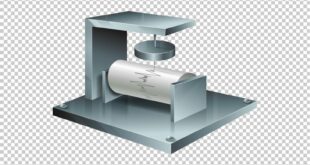The human reaction to pain is to quickly turn away from it. If you accidentally touch a hot pan, you’re going to jerk your hand back. This automatic reaction by your body will save your hand and spare you further pain. We react to emotional pain much the same way as we do physical pain, by quickly avoiding the source of pain.
Avoidance of pain, however, does not free us from it. It might even be the driving force behind our poor decisions and impulsive actions. I will take an example from my own life.
Growing up, I felt unwanted by my father. When I became a young woman, I avoided the pain of not being loved by believing that I didn’t need my father’s love—or any man’s love. Until my mid-twenties, I was not open to the prospect of marriage. I joined the Army instead, giving it my mind, body, and soul.
By avoiding my pain, I went into the opposite direction of where I’d find love, intimacy, and affection—the very things I needed. Instead, I became hardened, taking great pride in my physical and psychological endurance, closing myself off from any romantic relationships. I was a Christian at age 14, but my heart was not engaged with Jesus.
This was the condition of my heart: When people talked about abortion, I thought it was better for less people to be born into the world anyway. When I found out about a soldier’s suicide, I judged him for being weak and cowardly. If a man showed me any interest, I despised him and made cutting remarks. This wasn’t expected of me because outwardly, I was petite and nice-looking.
Damaged emotionally, I behaved in ways that made it impossible for me to experience what I desperately wanted but couldn’t acknowledge—relationships. My natural psychological system to handle pain by avoidance was inherently counterproductive. Unlike my body’s reaction to physical pain, my response to emotional pain caused me even greater pain and a messier psychology.
Freedom is not being domineered by avoidance. God can free us to make decisions purged from the workings of avoidance so that we become what we were meant to be from eternity.
There is only one way to psychological freedom and it is through Jesus Christ. He died for our sins and it is by His stripes alone that we are healed. (Isaiah 53:5) How? For me, God has used circumstances to bring a suppressed pain or wound to the surface. By His mercy and power I do not run away from it, even though it is death to me, reeking of hopelessness, sin, and shame. Through tears, sometimes sobs, the LORD takes me through a death—the sense of loss, rejection, and abandonment—and then His Spirit births inside of me an incredible joy, a release of new life and hope more firmly rooted in Him.
Jesus is the Christ, and His death and victorious resurrection means that we have a Healer, but the way is often through the death of self, and surrendering to God’s grace.
Trust God when He takes you through the valley of the shadow of death. He wants to free you from pain and fears and replace them with joy and freedom and most importantly, with Himself, the fullness of love.
“Very truly I tell you, unless a kernel of wheat falls to the ground and dies, it remains only a single seed. But if it dies, it produces many seeds” (John 12:24).
How has God’s healing power changed you and your life?
 The Bottom Line, Ministries Christian News, Articles, & Poetry
The Bottom Line, Ministries Christian News, Articles, & Poetry 




